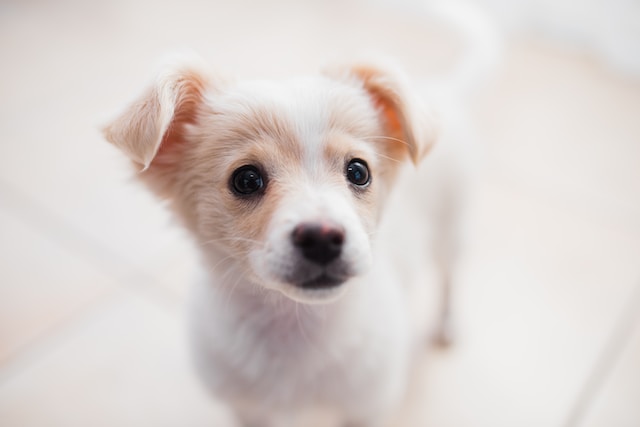
Giardia in puppies is frequently discussed in the Reddit and Facebook dog groups I belong to, so I decided that since is common in puppies and it is a serious parasitic infection, I would make a blog post about it, to help other puppy parents in the same way people help me.
If you suspect your puppy has giardia, your puppy has giardia, or you want to learn how you can prevent it, you are in the right place.
What is giardia in puppies?

Giardia is a one-celled parasite found in the small intestines of dogs. Giardia is also found in cats, various wide animals, and many people in third-world countries.
Even though a lot of research has been carried out on the giardia parasite, there are still a lot of things that have not been found out about it, like how many exact species there are, which exact species affects animals, the complete life cycles of the species that have been identified.
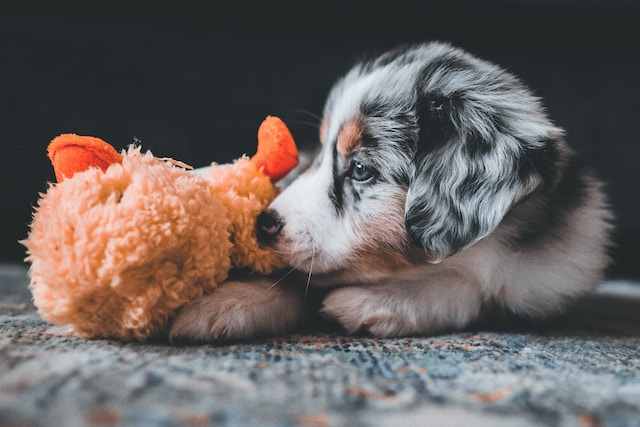
There is speculation that says that acquiring the giardia parasite is common but acquiring a disease from the giardia parasite is less common.
Giardia is pretty much everywhere in the environment, you can find it in rivers, pottles, ponds, and lots of other places. Giardia is a zoonotic disease which means if your puppy or cat has it or any person in the house has it, everybody in the house both humans and animals can get infected.
How do puppies get giardia?
Puppy mills or facilities that house a lot of dogs are breeding grounds for the spread of this parasite.

Your puppy could get giardia by ingesting infected cysts in the poop or through the environment like taking contaminated water.
Contamination can occur directly or indirectly through contact with cysts also if a puppy is giardia positive and lick its bum or backside and then lick or dog, cats, or humans there would be a potential for transmission.
The most common way puppies, other animals, and humans get giardia is through feces-contaminated water.
The life cycle of giardia in puppies

Once the particles of the feces that contain cysts enter your puppy’s intestines, the cysts open and release active forms of the parasite into the small intestines.
The cysts are very strong and they can live for weeks or months in the environment in very harsh conditions.
When in the small intestines, the giardias move around and attach themselves to the walls of the small intestines where they produce more of themselves by dividing into two which are the active giardia and cyst. The cyst is then passed out of the body through feces and the cycle continues.
The contaminated feces that is passed out of the puppy’s body can contaminate soil, water, grass, and other surfaces, especially in cool moist environments.
Symptoms of giardia in puppies
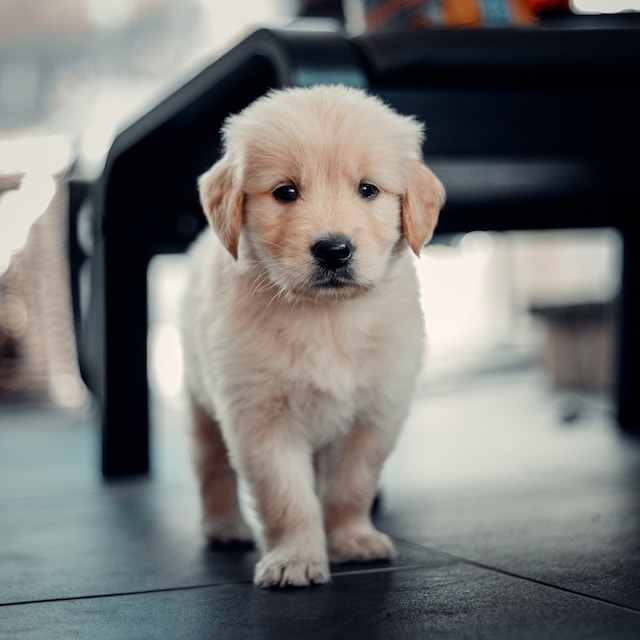
Giardia infection is most times asymptomatic which means there are no symptoms that your puppy is infected. When symptoms are present it is mostly diarrhea and it could be acute or chronic or intermittent, stomach pain, vomiting, and gas.
Many puppy parents don’t consult their vet about their puppy’s soft mushy stools because oftentimes with giardia infection it often improves on its own after several days, so you might want to call your vet about the stool but you would notice it has firmed up and you won’t end up calling the vet.
Oftentimes, diarrhea caused by giardia infection improves on its own in several days which is why most puppy parents end up not calling the vet, so might want to call your vet about your puppy’s soft mushy stool but then, you notice it has firmed up.
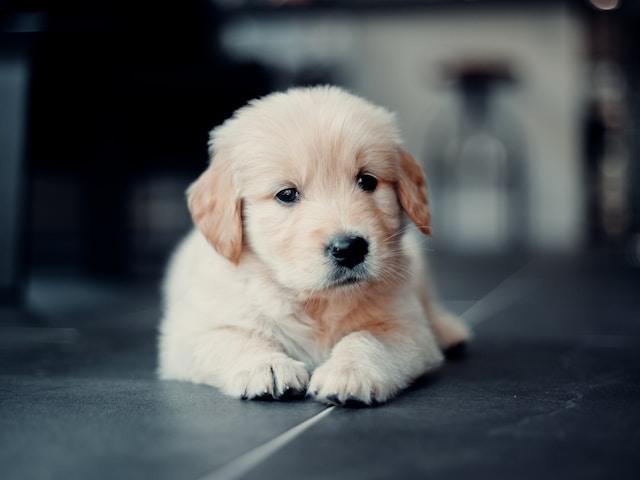
Sometimes the diarrhea comes, goes, and comes back again. Stools could be firm for a week or two, soft and mushy the next week, then firm again the next week. So it is an on-and-off diarrhea that oftentimes does not get serious enough for puppy parents to call their vet.
In most cases, puppy parents would assume that the intermittent soft stool means that their puppy got into something or they just may have a mild upset stomach, or that they ate something their stomach does not like.
Most times giardia in puppies goes undiagnosed for years because the symptoms never get bad enough to create a crisis that would make the puppy parent take their puppy to the vet.
After a week, month, or sometimes years of undiagnosed giardia in puppies, a giardia-positive puppy could actually experience an acute and very debilitating bout of bloody dehydrating diarrhea.
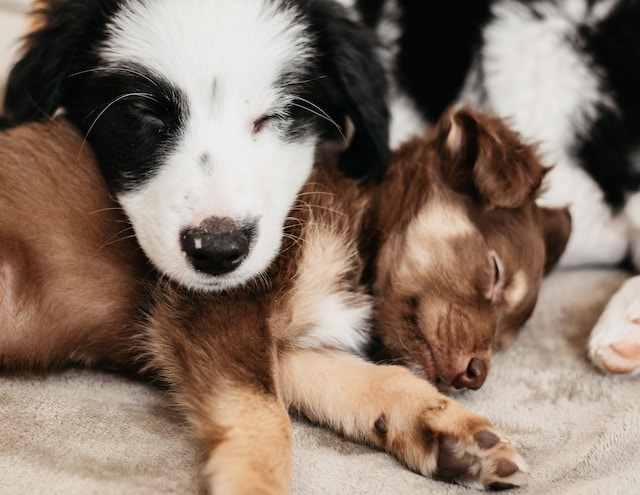
Loss of appetite is not a common symptom in puppies with giardia but it happens. Also, If the infection is serious, they could lose a lot of body weight, so puppies could still be eating but getting thinner and thinner.
The cause of the serious weight loss is that giardia infection interferes with the digestion and absorption of nutrients in the diet. It also damages the lining of the intestine.
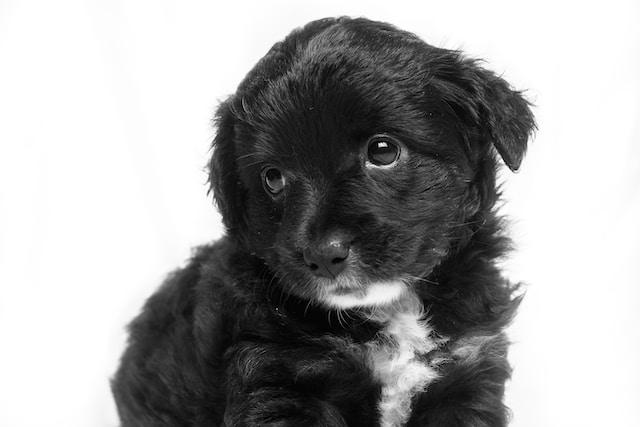
Giardia in puppies is at the root of many chronic GI inflammation. Many cases of underlying inflammatory bowel disease or dysbiosis can be caused by undiagnosed giardia infection.
Many dogs with underlying inflammatory bowel disease or dysbiosis have a history of being giardia positive as puppies.
Some puppies with chronic diarrhea, malabsorption, and other digestive issues tend to have undiagnosed giardia infections.
Diagnosis of giardia in puppies
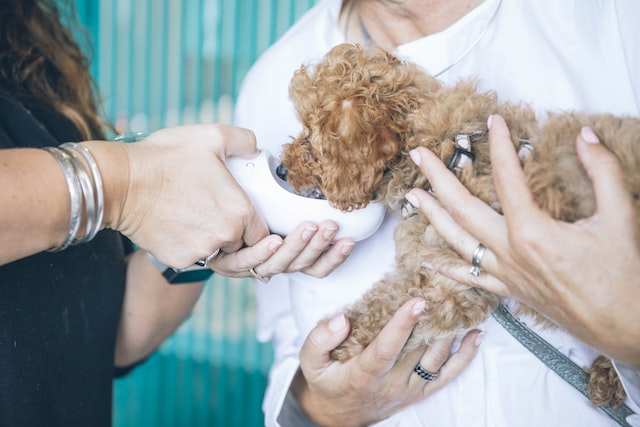
The giardia parasite is microscopic and can’t be seen with the naked eye and most times the standard parasite test performed at most local vet clinics misses the giardia parasite.
If you suspect your puppy has giardia, I would advise you to ask your vet to send your puppy’s fecal sample to a commercial laboratory for analysis.
I recommend that a specific test be carried out on the fecal sample while in the commercial laboratory, the test is called an Elisa or PCR test.
A vet advised me that a fecal Elisa or PCR test is better than the standard fecal flotation testing because it detects giardia antigens if there are any while a standard fecal float only checks for giardia cyst in poop which may or may not be present in that sample but could be in the next one.
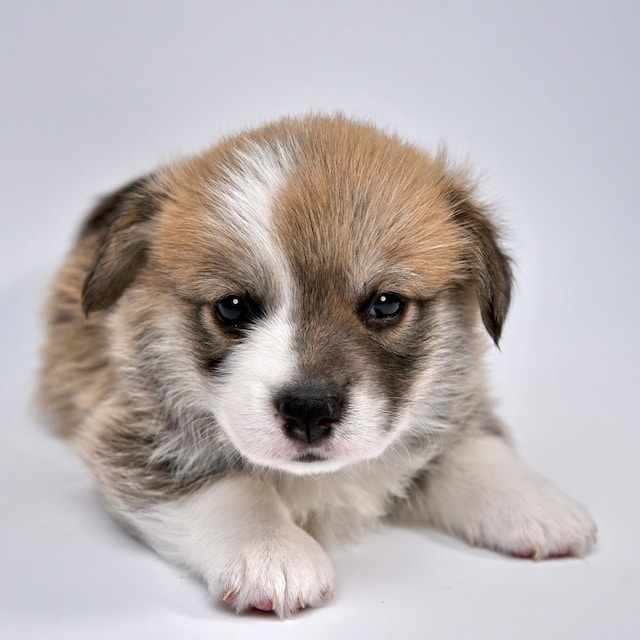
Giardia cysts are not shed in every fecal sample, so there may be 1 or 2 fecal samples that contain the cyst and 5 or 6 fecal samples that do not contain the cyst, and that is why sometimes the standard fecal float may be wrong.
That is why the Elisa test which is a fecal antigen test carried out in a commercial laboratory is the best if you suspect your puppy has giardia.
Also, a diarrhea panel is now something that is commonly done in labs, this checks for other causes of diarrhea and it could really be a good diagnostic choice for puppies with intermittent GI issues.
The diarrhea panel will test for elusive GI issues including giardia.
Treatment of giardia in puppies
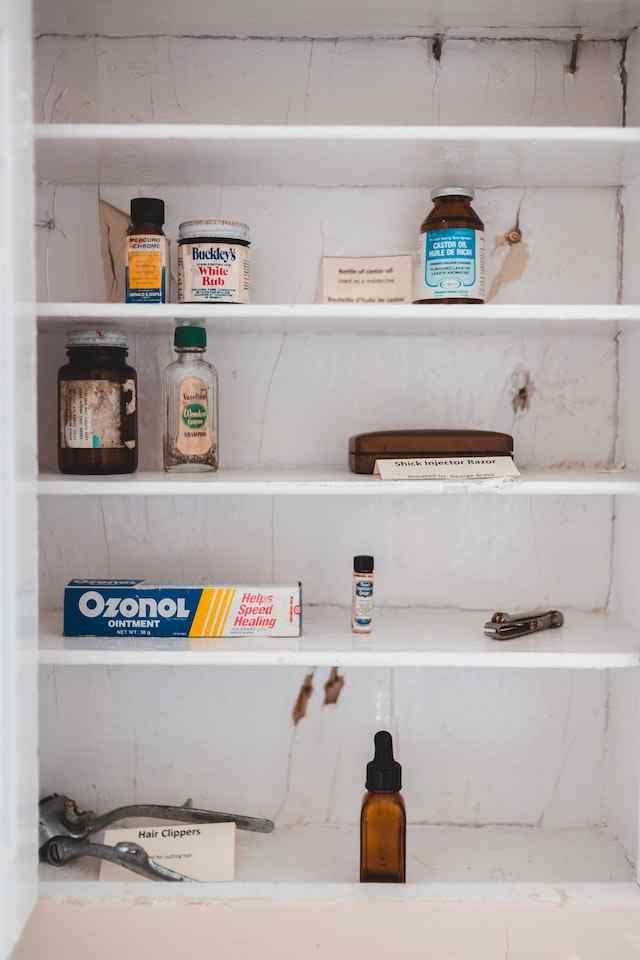
If your puppy has been diagnosed with giardia, your vet would prescribe medication like fenbendazole or metronidazole to hopefully eliminate the parasite.
The giardia parasite is now developing a resistance to many antiprotozoal drugs used to treat it, meaning that more and more puppies are becoming persistent carriers of the infection.
You should know that even after your puppy has been given medication and their stool samples have been checked several times your puppy could still be positive, so it is important that you keep checking until you get a negative.
Carrying out an antigen test immediately after treatment could be tricky and you would find out why.
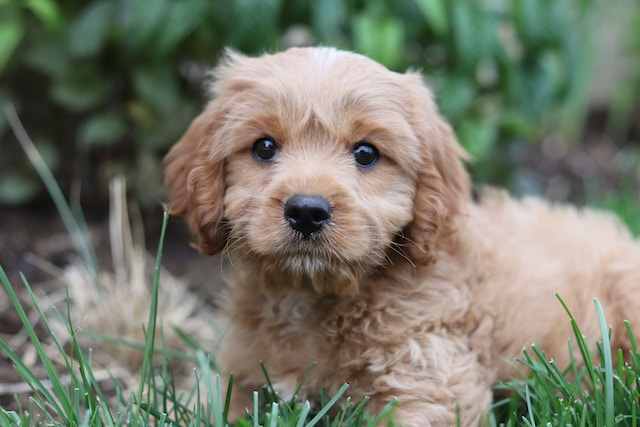
The antigen test is the test that we use to diagnose the parasite and it checks for your puppy’s body’s reaction to the parasite which could be positive for up to six months after treatment because it takes many months for your puppy’s body to clear all the antigens out of the bloodstream after the parasites have died.
I recommend that immediately after giardia treatment, your vet should run a fecal float test once a month for three to four months to make sure that it is negative followed by an antigen test to ensure that the infection is fully resolved.
If you have been following through, you would know that the reason for repeated fecal float tests is that the giardia cyst is not present in all poop samples.
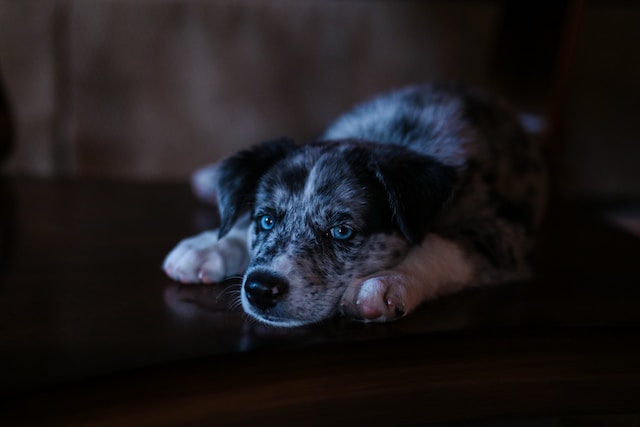
There have been a lot of puppy parents I talked to who told me there taught the giardia in their puppies was gone but it was not, so the best thing to do is to carry out repeated fecal float tests to make sure your pup is cured.
If you are using any form of natural treatment for giardia in puppies, I advise that you carry out intermittent stool checks for up to 9 months or more.
When my puppy was finally free from the giardia parasite, I was advised by people and vets in my Facebook dog group to partner up with a functional medicine veterinarian who can provide an intestinal recuperation plan, this helped prevent any long-term consequences from the parasites damaging effects. You should do it too.
Prevention of giardia in puppies
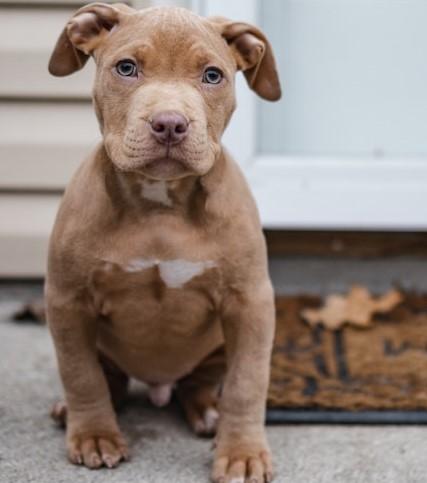
Do not kennel your puppy with a bunch of other animals of unknown parasitic status.
pick up your pup’s poop outside, and avoid walking your puppy in other areas where animals have pooped.
Prevent your puppy from drinking water from outdoor sources there mostly the main source of contamination.
You should get your pup’s fecal sample checked through your vet’s diagnostic lab twice or thrice a year. This would help in identifying any parasitic infections and treating them before they begin to cause serious GI inflammation.
FAQs about puppy diarrhea
What do you feed a puppy with giardia?

There is no particular diet for puppies with giardia. However, if the giardia cause diarrhea, the first thing to feed your puppy with diarrhea is nothing.
I know it sounds strange.
For the first 24 hours, you should not give your puppy any food to eat.
Food should not be given within the first 24 hours that you notice diarrhea so that the intestinal tract can rest completely.
It also gives time for the inflammation to subside.
Although food should not be given to the puppy within the first 24 hours, water is very necessary.

You have to ensure your puppy is well hydrated.
Your puppy should be granted free access to water. If your dog does not drink water I advise that you force it to drink.
When you want to introduce food to your puppy after 24 hours, I recommend that you introduce something that is especially bland.
My number one choice of food after the 24-hour wait is plain white rice.
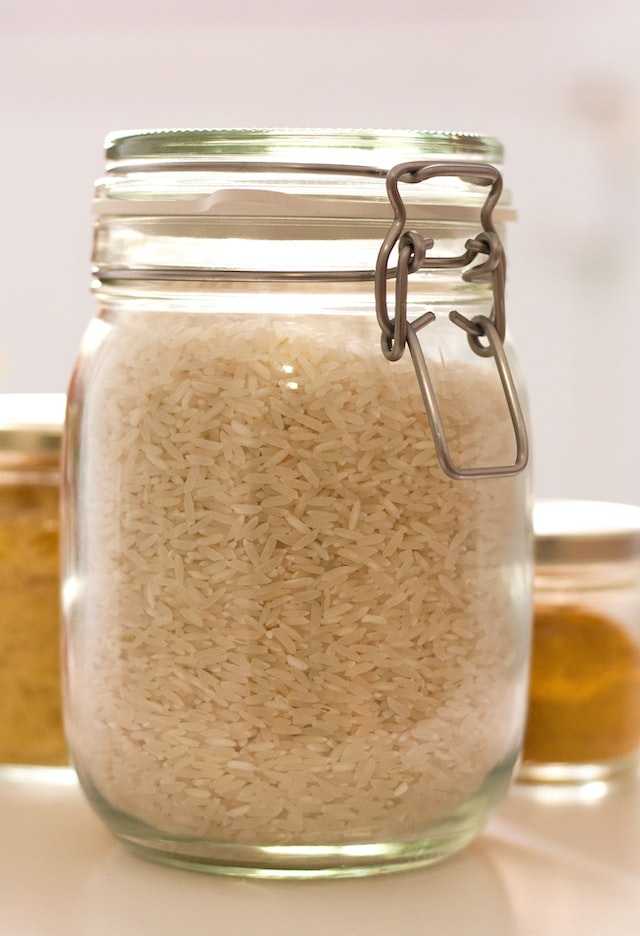
You should give your dog ¼ cup of rice per 10 lbs.
Plain white rice helps firm up your puppy’s stool.
White rice is low in fiber, which helps in not promoting bowel movement.
White rice is low in fiber because the bran, which contains most of the insoluble fiber, has been processed away
Is giardia common in puppies?
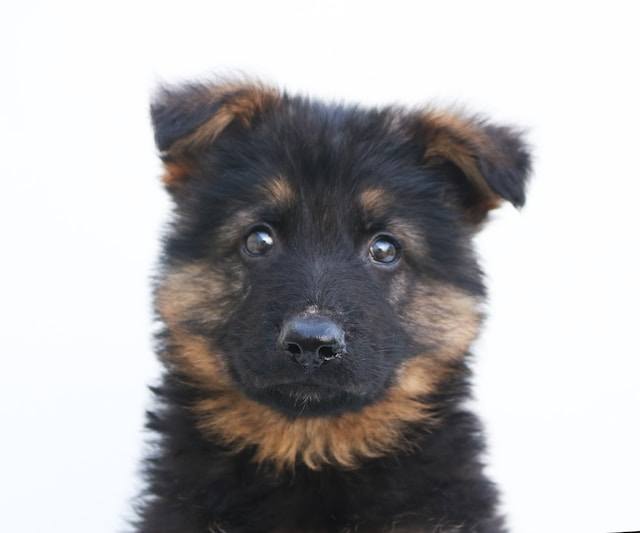
Yes, giardia is very common and most puppies tend to have it at least once in their lifetime.
How long is giardia contagious in dogs?
There is no specific period that giardia stops being contagious, so for as long as a dog has giardia, it is contagious.
How long does it take giardia to go away in puppies?
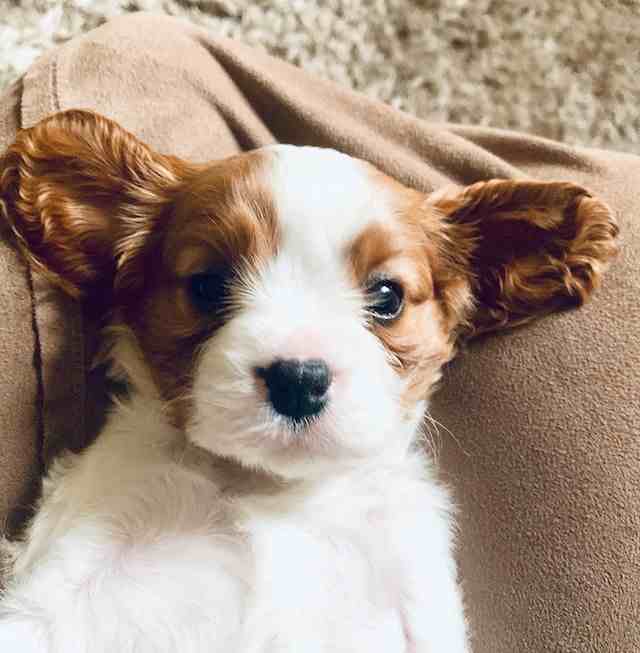
Once treatment has commenced, it takes about 3 to 10 days for the drugs to kill the parasites but if the infection is severe it may take longer and the puppy also needs to undergo rounds of treatment to fully clear it.
What medicine kills giardia in puppies?
If your puppy has been diagnosed with giardia, your vet would prescribe medication like fenbendazole or metronidazole to hopefully eliminate the parasite.
Can puppies survive giardia?
Yes, puppies can survive giardia. Most puppies who had giardia and were given immediate treatment survived it.
Can I touch my puppy with giardia?
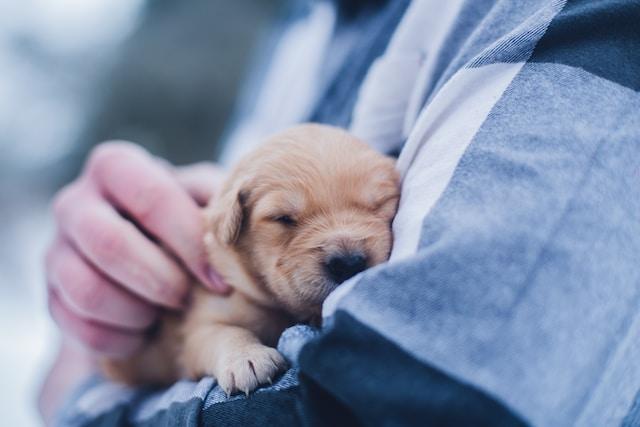
Well, you can touch a puppy with giardia but remember to wash your hand because if you touch any part of your puppy that has come in contact with contaminated materials like feces and you put your hand in your mouth, you can get infected with the parasite.
Why can’t my puppy get rid of giardia?
One reason is that the giardia parasite is now developing resistance to many antiprotozoal drugs used to treat it.
Another reason is that your puppy can easily be reinfected by coming in contact with their poop.
Why is giardia so common in puppies?
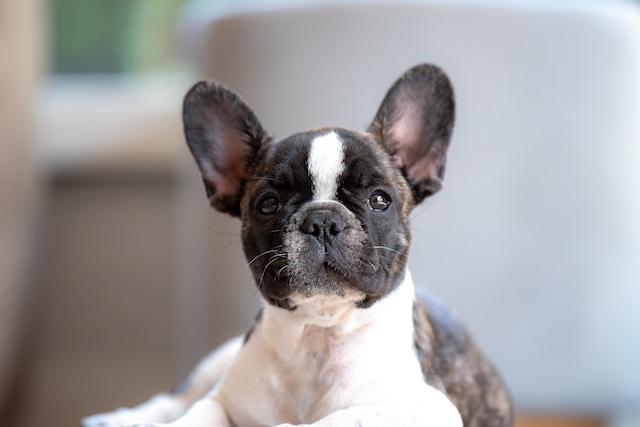
Giardia cysts are very strong and they can live for weeks or months in the environment in very harsh conditions.
Giardia is pretty much everywhere in the environment, you can find it in rivers, pottles, ponds, and lots of other places.
How many times can a puppy be treated for giardia?
It depends on how many times the puppy gets reinfected.
Does giardia affect puppy growth?
It affects the way your puppy digests and absorbs food that it uses to grow, so if the giardia infection is serious and it goes on for a long time, your puppy’s growth might be affected.
Important information

I am not a vet, any advice shared in this post is from my personal experience, deep research, advice from puppy parents, and vets in the Reddit and Facebook dog groups that I am a member of.
Some puppies die yearly because of giardia due to the ignorance of their owners, please share this post with groups or people that may need it, you could just save a puppy’s life without knowing.
I would also like to give credit to the veterinarian Dr. Karen Becker, I got a lot of information about giardia from her.
Related posts
everything you need to know to about Tapeworm in puppies to keep your puppy safe
Everything you need to know about Hookworm in puppies to keep your puppy alive
Everything you need to know about Roundworm in puppies to save your puppy’s life